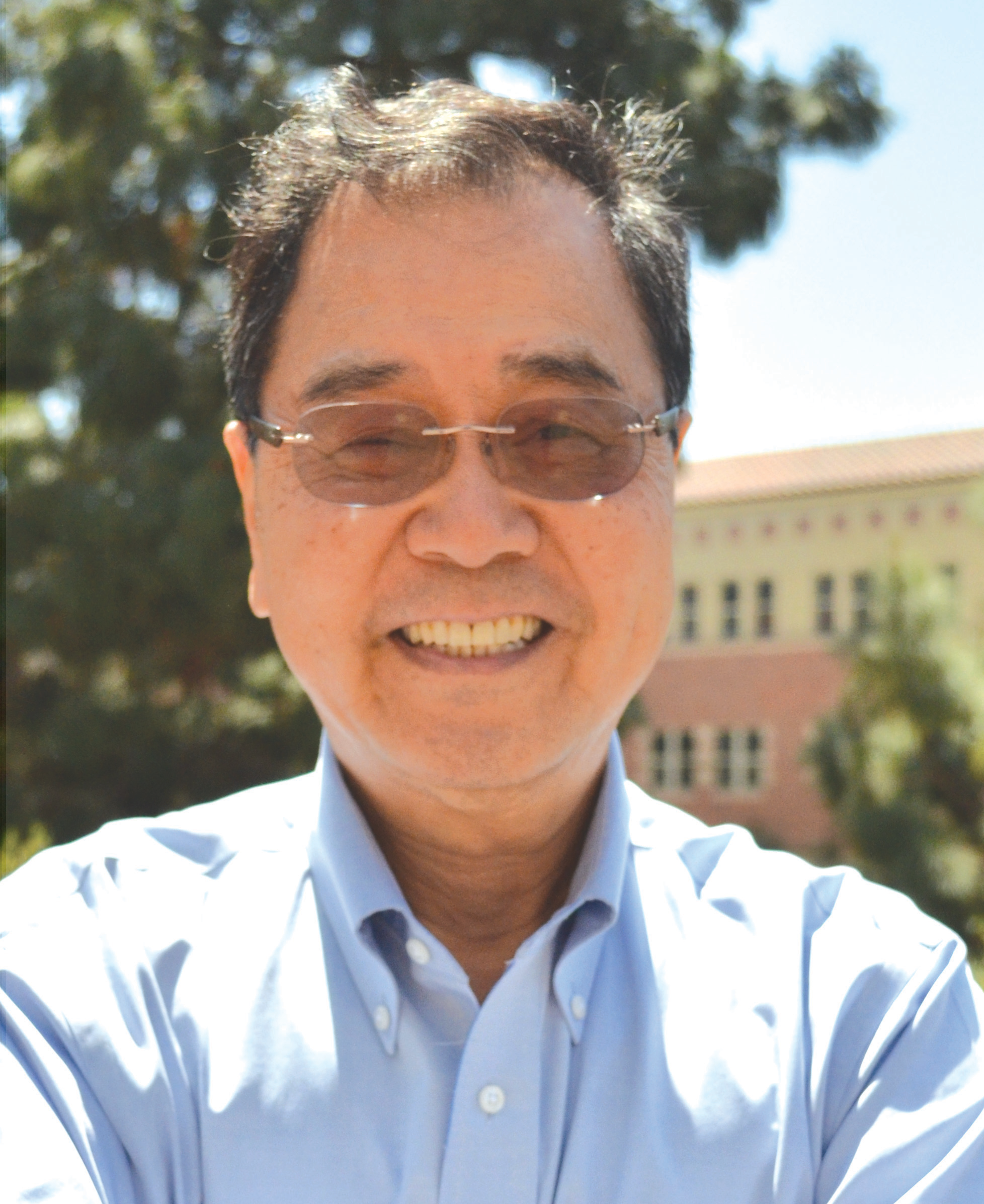Kang L. Wang

Kang L. Wang received his BS (1964) degree from National Cheng Kung University and his MS (1966) and PhD (1970) degrees from the Massachusetts Institute of Technology. From 1970 to 1972 he was an Assistant Professor at MIT. From 1972 to 1979, he worked at the General Electric Corporate Research and Development Center as a physicist/engineer. In 1979 he joined the Electrical Engineering Department of the University of California, Los Angeles (UCLA), where he is a Distinguished Professor. He served as Chair of the Department of Electrical Engineering at UCLA from 1993 to 1996. His research activities include semiconductor nano-devices, nano-technology, self-assembled growth of quantum structures and cooperative assembly of quantum dot arrays by Si-based Molecular Beam Epitaxy, quantum structures and devices; Nano-epitaxy of hetero-structures; Spintronic materials and devices; Electron spin and coherence properties of SiGe and InAs quantum structures for implementation of spin-based quantum information processing; microwave devices. He was the inventor of the strained-layer MOSFET, quantum SRAM cell, and band-aligned superlattices. He has held more than 20 patents and published over 600 papers. He has received numerous awards, including the IBM Faculty Award; Guggenheim Fellow; IEEE Fellow; TSMC Honor Lectureship Award; Honoris Causa at Politechnico University, Torino, Italy; Semiconductor Research Corporation Inventor Awards; European Material Research Society Meeting Best paper award; and the Semiconductor Research Corporation Technical Excellence Achievement Award.
| 1. | G. Yu, P. Upadhyaya, Y. Fan, J.G. Alzate, W. Jiang, K.L. Wong, S. Takei, S.A. Bender, L.T. Chang, Y. Jiang, M. Lang, J. Tang, Y. Wang, Y. Tserkovnyak, P. Khalili Amiri, K.L. Wang, "Switching of perpendicular magnetization by spin–orbit torques in the absence of external magnetic fields", Nature Nanotechnology, Vol. 9, No. 7, pp. 548–554, July 2014. |
| 2. | G. Yu, P. Upadhyaya, K.L. Wong, W. Jiang, J.G. Alzate, J. Tang, P. Khalili Amiri, K.L. Wang, "Magnetization switching through spin-Hall-effect-induced chiral domain wall propagation", Physical Review B, Vol. 89, No. 10, pp. 104421/1-6, March 2014. |
| 3. | Fan, Y., Kou, X., Upadhyaya, P., Shao, Q., Pan, L., Lang, M., Che, X., Tang, J., Montazeri, M., Murata, K., Chang, L.-T., Akyol, M., Yu, G., Nie, T., Wong, K.L., Liu, J., Wang, Y., Tserkovnyak, Y., and Wang, K.L., “Electric-Field Control of Spin-Orbit Torque in a Magnetically Doped Topological Insulator”, Nature Nanotechnology, January 2016. |
| 4. | G. Yu, L.-T. Chang, M. Akyol, P. Upadhyaya, C. He, X. Li, K.L. Wong, P. Khalili Amiri, K.L. Wang, "Current-driven perpendicular magnetization switching in Ta/CoFeB/[TaOx or MgO/TaOx] films with lateral structural asymmetry", Applied Physics Letters, Vol. 105, No. 10, pp. 102411/1-5, September 2014. |
| 5. | P. Khalili, K.L. Wang, "The computer chip that never forgets", IEEE Spectrum, Vol. 52, No. 7, pp. 30-56, July 2015. |
| 6. | M. Montazeri, P. Upadhyaya, M.C. Onbasli, G. Yu, K.L. Wong, M. Lang, Y. Fan, X. Li, P. Khalili Amiri, R.N. Schwartz, C.A. Ross, K.L. Wang, "Magneto-optical investigation of spin–orbit torques in metallic and insulating magnetic heterostructures", Nature Communications, Vol. 6, p. 8958, December 2015. |


